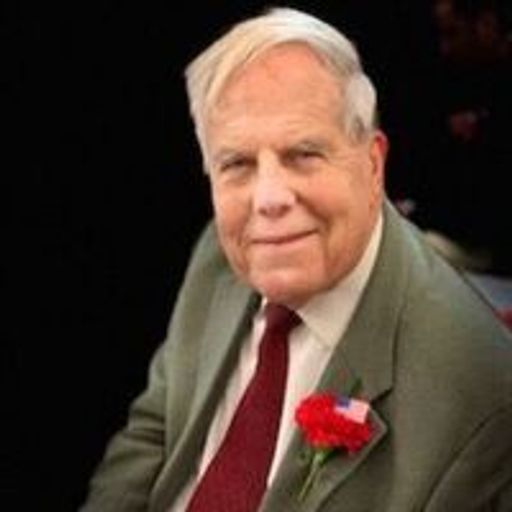19,
1931

03,
2020
Professor of Zoology, Emeritus
19 October 1931 - 3 June 2020
Antonie William Charles Blackler (plus four other middle names which were often bonus questions on exams) was a consummate urbane Englishman, but he didn’t start out that way. He was born to Leslie Guy and Florence Harris Blackler on October 19, 1931, in Portsmouth, England. His mother recognized his intelligence and defended his studying rather than curtailing his education as other members of the family advised. He owed her a lot for his later success in life.
Tonie was not one to discuss his youth, which was filled with strife and heartache, including twice being bombed out of his home during World War II. Tonie dedicated himself to his studies and immersed himself in the sciences, earning enviable scholarships to University College London, from where he obtained his B.S. and Ph.D. degrees in Zoology and Embryology. After obtaining his doctorate in 1956, he taught at Queen’s University of Belfast, Northern Ireland, and then joined the research lab of Michail Fischberg at Oxford University where he specialized in honing the technique of nuclear transplantation.
When the lab moved to Geneva, Switzerland, Tonie followed and, from 1961 to 1964, he taught and continued his research at the Station de Zoologie Expérimentale at Malagnou.
He loved the beauty of Geneva, Lac Leman and the surrounding hills as well as the vibrance of the multinational and multicultural city. The chocolates and cheeses were also big parts of his life there, as were the many lifelong friends he made.
Desiring a change in the focus of his research, Tonie accepted an invitation from
Dr. William Wimsatt, professor of Histology, to visit Cornell University.
Ithaca, Cayuga Lake and the surrounding hills, as well as a deepening friendship with Bill, convinced Tonie to leave Geneva. He came to the United States at the end of 1964 (on the HMS Queen Mary, along with a new young musical group called The Beatles) to serve as professor of Zoology in the College of Arts and Sciences.
His research continued in developmental genetics and nuclear transplantation which served as one of the building blocks for future stem cell research. His work was also instrumental in the preservation of endangered species of frogs through interspecies transplantation.
“Tonie was known for groundbreaking fundamental work on the origin of sex cells in vertebrates. His experiments with South African Clawed Toads (Xenopus laevis) yielded important insights into the development and reproduction of amphibian embryos, with implications for other animals and humans. His work focused on the female germline – the cells that make eggs. His experiments transplanting cells from one embryo to another showed that the germline is derived from special cells set aside in the early embryo. He also transplanted germline cells from one species to another, which led to results that showed that an embryo’s mitochondria are derived entirely from its mother. In addition, he conducted interspecies transplantation experiments with the goal of finding a host species into which the germline of an endangered frog species could be transplanted, to propagate or restore the species.”
“Tonie Blackler did extremely important – foundational – work in developmental biology, on the function of germline, the cells that make eggs or sperm, dating back to the 1950s,” said Dr. Mariana Wolfner,
the Goldwin Smith Professor of Molecular Biology and Genetics in the College of Arts and Sciences (A&S). “He was a very modest, self-effacing person, very wise, and had a deep and broad knowledge of biology.”
Nationally, Tonie served at the National Science Foundation (NSF) in Washington, D.C., as Program Director of Developmental Biology from 1974-75 and Director of the Division of Physiology, Cell and Molecular Biology from 1981-82. His aim was always to support the research of young scientists and further the advancement of research in his field.
He was a member of the Society for Developmental Biology (SDB), the International Society for Developmental Biology (ISDB), the American Association for the Advancement of Science (AAAS), and the Swiss Zoological Society.
At Cornell, Tonie served as chair of his department in the Division of Biological Sciences, then called Molecular Biology and Genetics, from 1993 to 1999.
“I knew Antonie Blackler as a distinguished teacher in developmental biology and in introductory biology for freshmen,” said Thomas Fox, professor of molecular biology and genetics. “He was collegial, thoughtful and urbane in everything he did.”
“Our faculty expressed an affection for him that went beyond his responsibilities as chair; he remembered so many details about our lives and work, and could inject humor into almost any situation,” said Eric Alani, professor of Molecular Biology and Genetics.
Indeed, Dr. Wolfner noted that Tonie had posted a Mark Twain quote on his office door:
“Eat a frog first thing in the morning and nothing worse will happen to you the rest of the day.”
In 2001, Tonie retired from Cornell in Ithaca only to become course director for the nascent Pre-Med Biology program at the Weill-Cornell Medical School (WCMC-Q) in Doha, Qatar, from 2002 to 2005. Even after he retired the second time in 2005 on his return from Doha, Tonie’s love of science never wavered. Until the COVID pandemic, Tonie continued to attend seminars at Cornell, taking copious notes; his favorite reading material remained scientific scholarly journals.
Tonie was humble when it came to his many achievements. He did not brag; he did not make others feel small even though his impressive intellect allowed him to identify by genus and species the majority of all plant and animal matter with which he came in contact, much to the chagrin of his children. Upon his passing, the outpouring of love from Tonie’s former students and colleagues is testament to his teaching skills and passion for learning.
“Tonie taught me that no matter how learned we become, we can always learn from others; and no matter how much others know, we may always have something new to teach them. It was a lesson I never forgot. It's a humility and a humanity you do not find in excess in Ivy League faculty.” Dr. Michelle Famula
In addition to science, Tonie loved his family, classical music (particular to Brahms, Beethoven, Bruckner and Mahler), gardening, Jaguars, and devouring historical texts of varied subjects. He treasured correspondence from friends and former students. He liked Branston pickles and a strong cup of tea. The art form of creating a perfect Negroni became a routine in his retirement.
Growing up with Tonie in the middle of 25 acres of trees, meant loving the outdoors, whether it was walking the many trails with his family or building his own ‘Hemlock Trail’ with his son. He also became well-known for maple sugaring in the winters, traipsing through the woods to gather sap and boiling it down to syrup on his very own ‘stove’ created from discarded water heaters and washtubs, spoiling friends and family forever on ‘the good stuff’ produced with Bill Wimsatt as ‘SAPS, Inc.’
Tonie’s many varied interests included his love of a good jigsaw puzzle - he could spend hours laboring over the right fit for a snowy fence or a wooded scene or a picture of Marilyn Monroe. He was a fan of Portsmouth FC, and took an avid interest in British football (soccer, that is) management and achievement. He appreciated great performances – celebrating the great acting and dancing of Vera Ellen or Audrey Hepburn, Ginger Rogers and Fred Astaire, while also listening to Julie London, June Christy, or Jo Stafford.
Tonie had the driest wit that would surprise you at the most unexpected times, delivered with the flourish of a British accent. His sense of humor and comedic timing were manifest.
Although Tonie never sought to be the center of attention, many a lively conversation was quietly broken up by a sentence or two from him – a brief pause, and then uproarious laughter ensued all around from his lethal wit. It was a gift to hear him speak: the thoughtfulness of the content; the selected word choice from his mammoth vocabulary; his accent that made every word ‘sound better’; the smirk on his face and the sparkling grey eyes when he knew he was about to make others laugh. His prose was exceptional and unique, the vocabulary and sentence structure beautiful without being unreachable for the recipient.
He could also be silly. He regularly poked good-natured fun at unimaginative rock songs or television diddies. He passed along his love of rewriting lyrics, or inventing original scores with fetching titles such as “Oh Where, Oh Where, is Your Uncle Sid?” or that he insisted on proclaiming “Kiki!” after every sneeze. His knowledge of the songs and stories of Spike Jonze peppered his repertoire with sometimes questionable taste but always laughter and fun.
Tonie Blackler was kind to friends and strangers, offering help with a flat tire at the side of the road on a snowy night, or ruminating about a friend in need, or worrying about societal woes for the betterment of all. In late 2019, after living in the States for 55 years, being an Alien Resident in the US was no longer enough. He became a naturalized US citizen for the sole purpose of being able to vote against the kind of hateful divisiveness that destroyed his childhood home during WWII.
Tonie is survived by his wife of 50 years, Shelley ’67, their children, Mia ‘93 and Joshua ‘01, their respective spouses (Mark and Sandra ‘02), and his grandchildren (Colin and Grace).
While our hearts are raw and shattered with Tonie’s sudden and tragic departure, he is with us with every rustle of the leaves in the wind, his garden of plants which we must learn how to tend, the sunset when seen from Tonie’s ‘beer o’clock’ deck, and the hearts of all those many people who loved him. We miss him so very much.
To send a flower arrangement or to plant trees in memory of Antonie W. Blackler, please click here to visit our Sympathy Store .
To order memorial trees or send flowers to the family in memory of Antonie W. Blackler, please visit our flower store.




